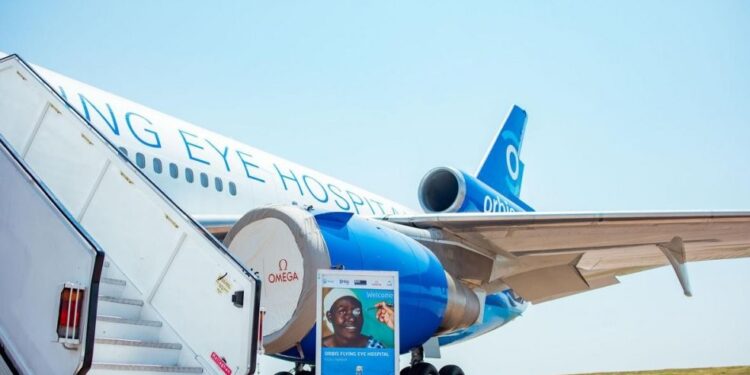For the first time, Rwanda is hosting the Orbis Flying Eye Hospital, a U.S.-based airborne medical facility providing free eye surgeries and specialized training for local health professionals.
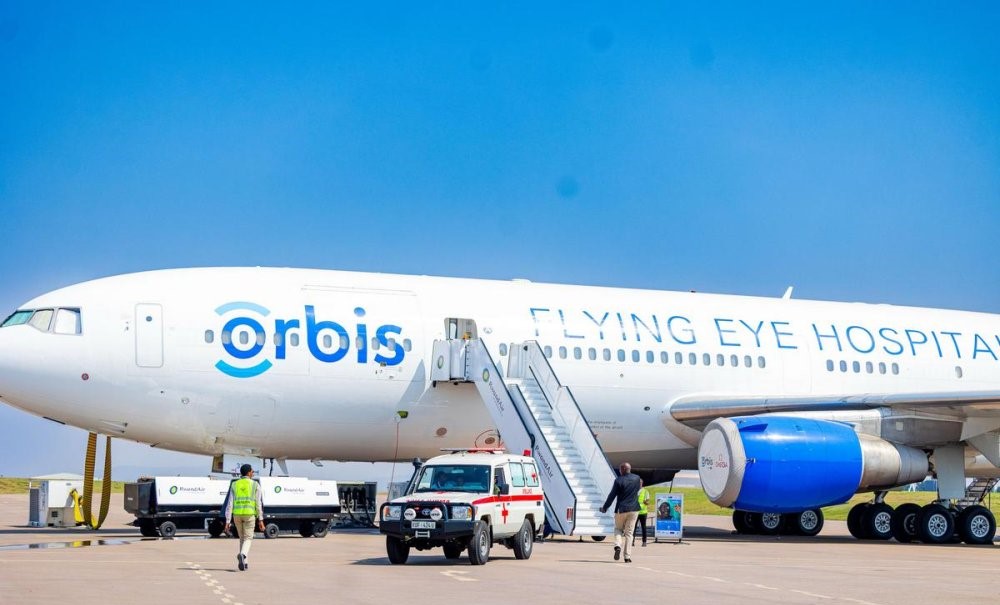
The converted MD-10 aircraft, operated by the nonprofit Orbis International, began treating 40 patients at Kigali International Airport on Tuesday. The mission, which runs from July 21 to Aug. 1, combines advanced medical treatment with hands-on training in ophthalmology for more than 100 Rwandan health workers.
“This initiative is not just about restoring sight, but also about building lasting capacity,” said Dr. John Nkurikiye, medical director at the Rwanda International Institute of Ophthalmology (RIIO), one of the mission’s local partners.
The Flying Eye Hospital is equipped with a fully functional operating room, a pre- and post-op area, a classroom and a simulation center. Its presence in Rwanda marks the 84th country visited by Orbis since the program began in 1982.
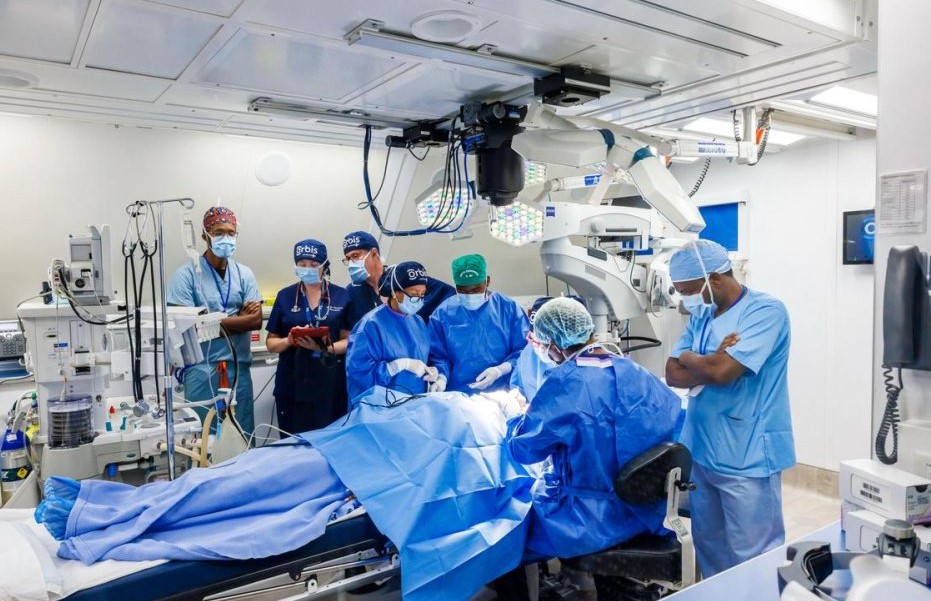
Over the course of the visit, Rwandan medical staff—including ophthalmologists, anesthesiologists, biomedical engineers and nurses—are receiving intensive training in eye care procedures, with a focus on cataract surgery, pediatric eye conditions and modern surgical techniques using artificial intelligence and virtual reality tools.
Among the new tools is a virtual reality (VR) simulation platform, donated to RIIO by Orbis and its partner, Haag-Streit, a German manufacturer of medical devices. The VR program offers 30 hours of surgical training, helping participants practice complex procedures before working with patients.
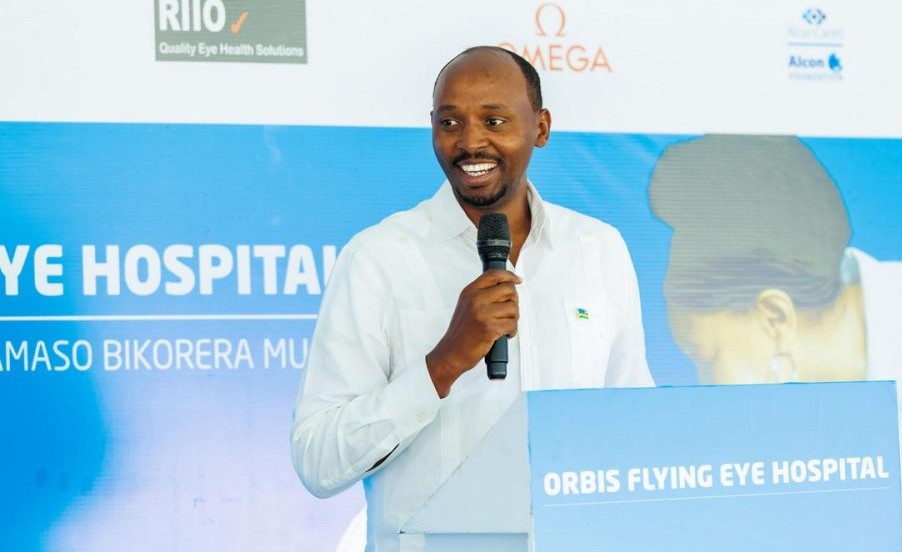
“This is the first time we’ve had a flying hospital on Rwandan soil, and it’s an important step for our national health system,” said Minister of Health Dr. Sabin Nsanzimana. “We hope to increase our number of qualified eye specialists from 30 to at least 120 in the next five years.”
According to the Ministry of Health, Rwanda currently has a shortage of ophthalmologists and relies on training programs like those offered by RIIO and visiting partners such as Orbis to expand local capacity. RIIO, founded in 2010 by Dr. Nkurikiye and Prof. Ciku Mathenge, has trained more than 200 eye professionals and over 2,700 primary care nurses in basic eye care.
The patients selected for surgery were identified in advance through a screening process led by RIIO in collaboration with doctors across the country. In addition to the 40 patients being treated aboard the aircraft, another 100 will receive treatment at Kibagabaga Hospital in Kigali.
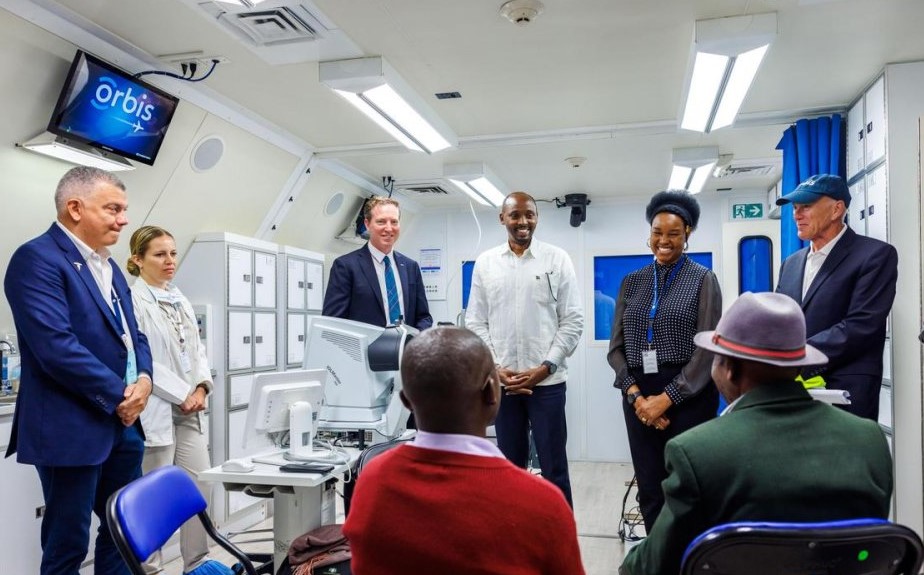
Dr. Moïse Habineza, an ophthalmologist at Ruhengeri Hospital who participated in the training, said the VR simulations made a noticeable difference. “It gave my hands confidence before performing the actual procedure. It’s a safer, more effective way to prepare,” he said.
Maurice Geary, director of the Flying Eye Hospital, praised Rwanda’s health officials and medical community for their collaboration.
“This is our first time in Rwanda, and we’re honored to be here,” he said. “The Flying Eye Hospital is the world’s only accredited teaching hospital on board an aircraft, and we’re proud to work alongside local experts to improve access to quality eye care.”
The collaboration is part of a broader effort by the Rwandan government to quadruple the country’s medical workforce as part of its national health development strategy. Officials say it takes nearly 25 years of education and training to become a fully qualified eye surgeon, highlighting the importance of both long-term investment and innovative training methods.
“This is the future of specialized medicine in Rwanda—strong partnerships, local leadership and cutting-edge tools,” Nsanzimana said.
Since its founding, Orbis International has trained more than 100,000 health professionals worldwide through in-person missions and its online telemedicine platform, Cybersight.
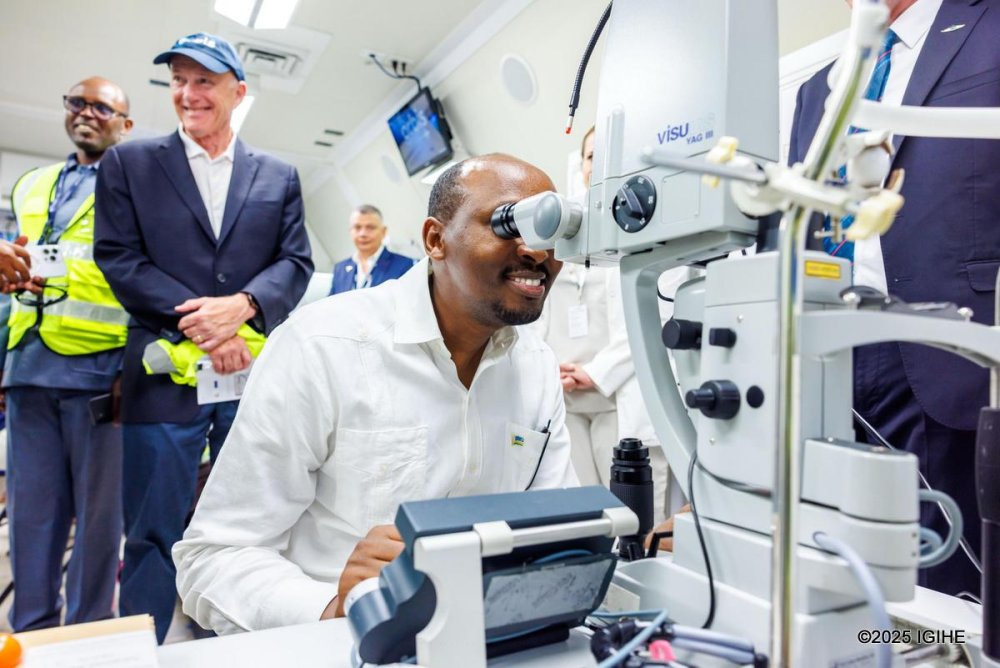
As the Flying Eye Hospital wraps up its mission in Rwanda, officials hope the impact will extend far beyond the airport runway, laying the groundwork for a stronger, self-reliant eye care system for generations to come.


